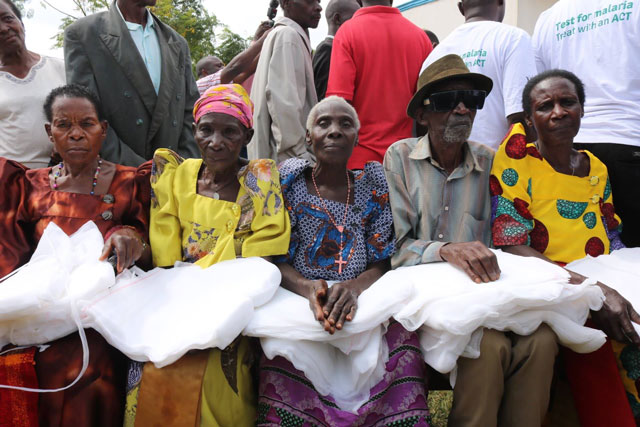
Kampala, Uganda | THE INDEPENDENT | Uganda and other African countries are being urged to raise local resources towards the fight against malaria. The call, contained in the African Development Bank’s report, comes as Africa joins the recent of the world to commemorate World Malaria Day 2018.
The global Malaria day is held annually on April 25 as part of the efforts to mobilise support in the fight against one of the leading killer diseases in most of the Sub Saharan Africa including Uganda. The African Development Bank report titled “Money and Mosquitoes: The Economics of Malaria in an Age of declining Aid” examines financing in the battle against malaria, focusing on the role of foreign aid.
It analyzes whether or not a disease such as malaria can be controlled or eliminated in Africa without health aid. It also presents a theoretical model of the economics of malaria and shows how health aid can help avoid the “disease trap.” While calling for increased funding from international sources to fight malaria, it also recommends that African countries step up their own efforts, including on domestic resource mobilization. In 2016, governments of endemic countries contributed 31% of the estimated total of US $ 2.7 billion.
Studies show that only 33 countries have been certified as malaria-free and 95 countries and territories still had ongoing malaria transmission in 2015. According to the latest World Malaria Report, released in November 2017, there were 216 million cases of malaria in 2016, up from 211 million cases in 2015.
The estimated number of malaria deaths stood at 445,000 in 2016, similar to the previous year’s 446,000. Carrying a disproportionately high share of the global malaria burden, Africa in 2016 was home to 90 percent of malaria cases and 91 percent of malaria deaths. Some 15 countries – 14 in Sub-Saharan Africa and India – accounted for 80 percent of the global malaria burden. Children under 5 are particularly susceptible to infection, illness, and death, with 70 percent of all malaria deaths.
The number of under-5 malaria deaths declined from 440,000 in 2010 to 285,000 in 2016, but it still takes the life of a child every two minutes. Authors include Harvard University’s Nobel laureate economist Eric Maskin; African Development Bank Group Vice-President for Economic Governance and Knowledge Management, Célestin Monga; Josselin Thuilliez of the French National Centre for Scientific Research, and Jean-Claude Berthélémy, Professor of Economics at the University of Paris 1 – Panthéon-Sorbonne and Corresponding Member of the Institut de France.
Reports indicate that between 2000 and 2014, malaria control efforts were scaled up and worldwide deaths were cut in half. But declining health aid and deprioritized vertical aid (as for malaria), despite its potentially great efficiency, have led to rising numbers of cases.
In 2016, 216 million cases of malaria were reported, up from 211 million in 2015. Africa was home to 90% of all malaria cases and 91% of malaria deaths in 2016. Progress appears to have stalled in the global fight against the disease.
“Malaria is bad for business,” African Development Bank President Akinwumi Adesina told the African Leaders Malaria Alliance, a coalition of 49 African Heads of State and Government that was established in 2009 to eliminate malaria by 2030, during the African Union Summit in January. “For this reason, Africa should invest in the local manufacturing of low-cost generic medicines to facilitate access to treatment for its people.”
Malaria strains national economies and impoverishes households, Adesina remarked, adding that the economic impact of the tropical disease costs Africa an estimated US $12 billion annually. The gross domestic product of some nations is affected by as much as 5-6%. Of the drugs consumed on the continent, an estimated 79% are imported from India and China whereas if anti-malaria medicines were manufactured locally, they would be affordable for most Africans families.
****
URN
 The Independent Uganda: You get the Truth we Pay the Price
The Independent Uganda: You get the Truth we Pay the Price


